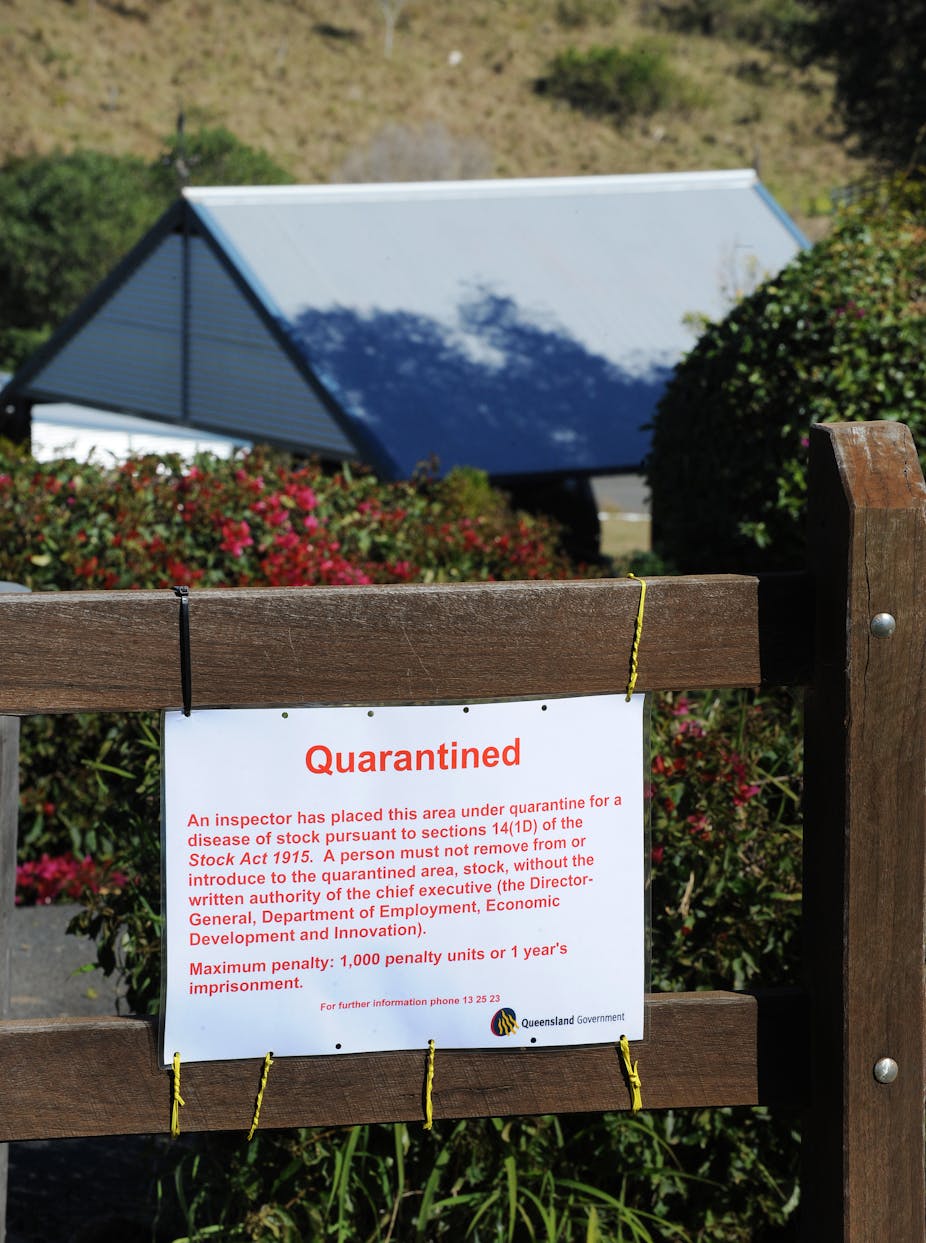In a world first, a dog has tested positive to the lethal Hendra virus, prompting the CSIRO to call for fresh research into the risk it could spread from canines to humans.
Hendra virus, which is usually spread from flying foxes to horses and, on rare occasion, to humans, causing a viral pneumonia or encephalitis.
Of the seven people ever known to be infected, four have died, making Hendra virus one of the most dangerous viruses in the world.
The dog that tested positive to the disease was found on a property in Queensland where Hendra virus infection had already been confirmed and is currently under quarantine.
Professor Martyn Jeggo, director of the CSIRO Australian Animal Health Laboratory, said it was known in theory that other animals could catch Hendra virus but this had never before been seen in the field.
“This is the first time outside of a laboratory that we have evidence that an animal other than a flying fox, horse or human has been confirmed to have Hendra virus antibodies,” he said.
“There are areas of research that will now need to be looked at in light of this recent development, for example further research into how this virus affects dogs and the potential for risk of transmission to humans.”
A vaccine has been in development for more than ten years, since shortly after the first outbreak of the disease was discovered in Hendra, Queensland.
Professor Jeggo said the vaccine was on track to be available for potential use in 2012.
“The other key research area that we need to focus on is to better understand why this disease emerges from bats, what causes it to switch hosts and what factors are involved in allowing this to happen,” he said.
Queensland Chief Veterinary Officer, Dr Rick Symons, said earlier tests on the dog returned two negative results but a different type of test conducted at the Australian Animal Health Laboratory has confirmed the presence of antibodies.
“This means that at some point the dog has been exposed to the virus but to our knowledge has shown no signs of illness,” he said, adding it was unclear how or when the dog was infected.
It is most likely the dog caught the virus from a horse, he said.
“Biosecurity Queensland has tested other cats and dogs on the eleven properties currently under quarantine in Queensland and has received no other positive results.”
“We recommend that people keep dogs and cats away from sick horses to reduce the risk of such an infection happening.”
Queensland’s Chief Health Officer Dr Jeannette Young she believed there was a minimal risk of infection to humans from the dog.
“For a human to become infected, they would have had to have significant contact with bodily secretions (saliva and/or blood) that contain the Hendra virus,” she said.
“Staff are also available to assist anyone with concerns via 13 HEALTH (13 43 25 84), and mental health staff are on standby to provide counselling or support.”

